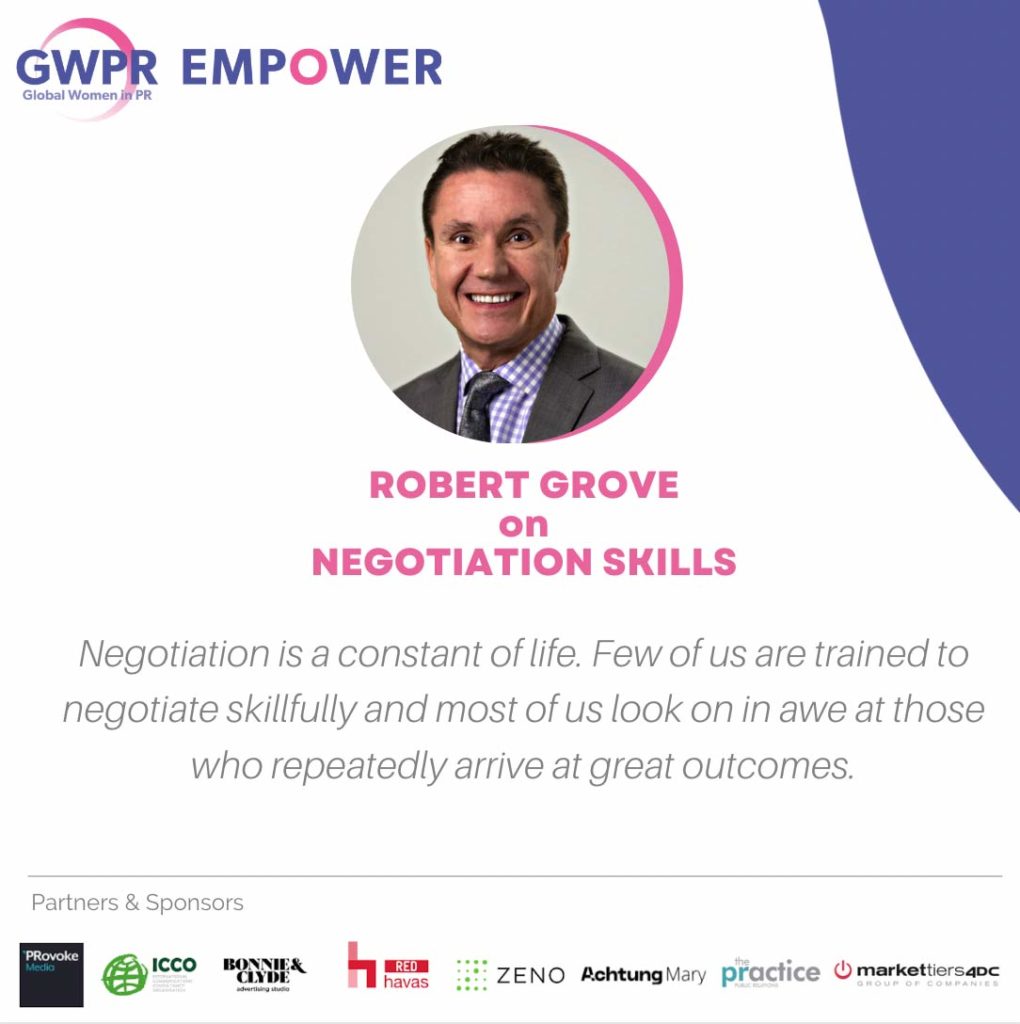Published 16th Nov 2022
Summary of the session by Arina Flyugova, CA Operations Manager at HEINEKEN Netherlandsand GWPR mentee

Negotiation is a way of life – one just needs to accept it. And, according to Bob Grove, it is also a skill that we can all master.
What do the best negotiators do? They prepare thoroughly before arriving at the negotiating table: ask questions and gather information, including aspects that could be used by the other side. This is called the pre-bargaining phase. Feeling very well prepared will always pay off. This will enable you to establish your positioning and give you leverage – such an asset for your employer.
Use the time as your friend – it can change your leverage. On the one hand, start preparing early – negotiations can happen at any time. On the other hand, use this as an opportunity to delay negotiations when needed. It will give you scope for proper analysis.
Negotiations are always about interaction and human connection. Invest in building rapport and establishing trust. Bob recommends the following guiding principles of reciprocity: 1) be trustworthy and reliable yourself 2) be fair to those who are fair to you 3) let others know if they treated you unfairly.
Be strategic in planning your storyline for negotiation. Consider all the possible scenarios as you would do in crisis communications. Try to understand a full scope of responses and the objectives of your stakeholders. And be clear about your own goals. The more specific your vision is and the more committed you are, the more likely you are to achieve your goal. Be bold in expectations. Set your mindset on what you want, not what your partners would accept. Have details to justify your goal and they will be viewed constructively.
Stay mindful at the negotiation table – observe the room. Interestingly, we’ve got two ears and only one mouth – control what you say. You cannot read the room if you spend most of the time talking. Careful and consistent observation will help you interpret the group dynamics. Watch for non-verbal clues. Re-engage your partners – ask open questions. This is called contextual observation – what’s motivating your counterparts outside the room, what about the other company’s performance, what is the context for your negotiation. Try to capture the needs – people do not naturally disclose them. Information is your resource, and you are competing for it. Finally, don’t get drawn into negative energy – guide the room and lead the talk.
As you move towards an agreement, always follow a win/win paradigm. And sometimes you might not get what you want. In this case, think of BATNA – your Best Alternative To a Negotiated Agreement. If I do not reach an agreement, what do I do with an opportunity of not having a deal? This thinking will enable your resource maximization and widen your zone of possible agreement.
Finally, if you give something, always request something else in return. Everything has a value, and nothing should be given away for free. The irony is that by giving something away too easily, its value becomes much diminished for the recipient.
So, what are the key ingredients of successful negotiation? Prepare, ask questions, test for understanding, summarize discussions and listen, listen, listen… You get more by finding out what your stakeholders want than by using your clever arguments supporting what you need.
Thank you for sharing your experience, Bob!






